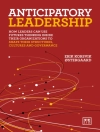Much work has been done on port governance yet little has addressed intermodal terminal governance, despite the clear similarities. This book fills that gap by establishing a governance framework for situating analysis of intermodal terminals throughout their life cycle. A version of the product life cycle theory is amended with governance theory to produce a framework covering each stage of the terminal’s life cycle, from the initial planning to the many decisions taken regarding the public/private split in funding mechanisms, ownership, selecting an operator, specifying KPIs to the operator, setting fees, earning profit, ensuring fair access to all rail service operators, and finally to reconcessioning the terminal to a new operator, managing the handover and maintaining the terminal throughout its life cycle. An institutional analysis of stakeholder relations, situated within a governance framework, illuminates these issues and enables not only conceptualisation and greater understanding of the geography of intermodal transport, but also decision-making and goal-setting by planners and policy makers. This book thus has three functions: first, as a textbook on the planning and operation of intermodal terminals; second, as a presentation of recent empirical research on intermodal terminal governance; third, as a framework for future research in which the broad field of analysis of intermodal transport can be viewed through a single lens and used to inform geographers, policymakers and planners.
Rickard Bergqvist & Jason Monios
Intermodal Freight Terminals [EPUB ebook]
A Life Cycle Governance Framework
Intermodal Freight Terminals [EPUB ebook]
A Life Cycle Governance Framework
Koop dit e-boek en ontvang er nog 1 GRATIS!
Formaat EPUB ● Pagina’s 234 ● ISBN 9781317114543 ● Uitgeverij Taylor and Francis ● Gepubliceerd 2016 ● Downloadbare 3 keer ● Valuta EUR ● ID 4898498 ● Kopieerbeveiliging Adobe DRM
Vereist een DRM-compatibele e-boeklezer











